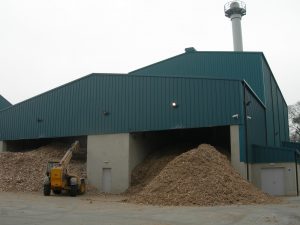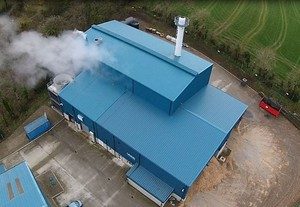Energy
Energy and the management of energy is vital to support all activity on earth. As the discussion rages about climate change and the effects of global warming and man’s contribution, so the management of energy becomes ever more important.
This includes how we source energy in a low-carbon way, how we use energy efficiently and how we manage by-products of energy consumption.
We consume energy in so many ways, and in every case there is a challenge to develop the energy source that reduces the cost and the carbon impact. Once those energy sources are adopted the challenge is then to reduce the consumption by using the energy source more efficiently.
Our energy-related services
- Energy efficiency
- Industrial energy efficiency
- Process optimisation
- Water efficiency
- Waste water management
- Waste management and recycling
- Compliance – Energy Savings Opportunity scheme (ESOS)
- Energy sources
- Renewable energy
- Biomass
- Planning for energy
- Energy from waste
Anaerobic Digestion
A popular farm-based energy source but not easy to implement successfully. Choice of site, feedstocks, operating temperatures and a clear biogas usage strategy are essential, even before planning issues are overcome. Read More
Wind Power
Very widespread now, contentious too, but generating a considerable proportion of our energy needs. Element has steered many wind projects to success but this has been built on thorough planning, a good design and patience. Read More
Biomass
Biomass schemes can vary from huge biomass power stations to domestic wood or pellet boilers but the same attention to detail is required to guarantee success, based on a complete understanding of biomass and how to integrate it into a system. Read More
Solar Thermal
Returns are not as good on this as they were but there is still a place for a well-thought scheme, usually in partnership with other energy sources. Read More
Solar PV
One of the most popular installed renewable energy sources, returns are good on this technology and it seems very durable with panels still performing after over 30 years use. The scheme must be well-sited and beware of deals that seem too good to be true. Read More
Hydro Power
Could Hydropower be the best long-term renewable energy investment? Some schemes have been running for hundreds of years. Hydro power will only perform if the site is right, where a combination of volume and head are required, along with a well-designed scheme to harness the site’s potential. Read More
Energy Storage Solutions
As energy storage development progresses we are starting to see a future of off-grid independent sustainability, but the economics are not there yet although for some locations with no grid alternatives they are now coming in to play. This is the fastest-developing area in the energy market. Read More
Heat Pumps
Heat pumps are a widely misunderstood technology where knowledge of expected Coefficients of Performance is crucial to ensure they are applied in suitable projects. They can play a very valuable role in converting your renewable energy electricity supply to contribute to your heating load but this needs to be designed in. Read More
No matter what renewable energy source you are considering, we have practical project experience from initial concept to successful operation.
Planning Policy for Renewable Energy in Northern Ireland
Element recently undertook a thorough study for the Department for Infrastructure in Northern Ireland. The final report remains the property of DfI
Introduction
On 1st April 2015, the former DOE transferred responsibility for the majority of planning functions to 11 new councils. This marked the most significant change to the planning system in the north of Ireland in over 40 years and empowers local councils to shape how their area grows and develops. Councils are now responsible for the preparation of local development plans, determining the vast majority of planning applications and the enforcement of planning control.
On the 9th May 2016, the restructuring of the Northern Ireland Civil Service (NICS) culminated in a reduction of the number of Government Departments in the north of Ireland from twelve to nine. The new Department for Infrastructure (‘the Department’) retains responsibility for regional planning policy and legislation, determination of regionally significant and called-in applications, performance management and oversight and guidance for councils.
To support the move to the new two tier planning system which commenced on 1st April 2015, the Strategic Planning Policy Statement (SPPS) was prepared. It is a shorter, simpler, strategic planning policy framework. The SPPS was published on 28th September 2015. The primary focus of the SPPS was the consolidation of some twenty policy publications into one document, setting out strategic planning policy in relation to a wide range of subject policies, including regional policy for ‘Renewable Energy’, which is now one of two policies that are the focus of a full review.
The Job.
The contractor will carry out comprehensive research in relation to strategic planning policy on onshore Renewable Energy development, which will involve facilitating stakeholder engagement event(s), the structure and timing of which shall be agreed by the Department prior to being organised. The contractor will provide Policy Options (to include the pros and cons of each option) and recommend the preferred option on the future direction of strategic planning policy for this topic.
Detailed Requirements
The consultant is required to:
- Have regard to all relevant factors necessary to provide an overview of the wider context for strategic planning policy for onshore Renewable Energy development, including its inter-relationship with other strategies such as the Strategic Energy Framework. The contractor shall analyse and describe the impacts of onshore renewable energy developments, to include the pros and cons of the current policy approach. This will address the wider benefits and costs of onshore renewable energy development in terms of social, economic and environmental impacts, and describe the implications of renewable energy policy spatially;
- Carry out a comparative review of policy and practice in other jurisdictions of Britain and the south of Ireland (where appropriate, the consultants may draw upon relevant research projects recently carried out);
- Analyse the impact and effectiveness of existing policy provisions for the various types of onshore renewable energy developments in the context of the aim and objectives of the SPPS and extant policy provisions within PPS 18;
- Identify present and likely future trends in renewable energy and associated infrastructure, for the Region over the short, medium, and long term. This shall incorporate reference to social, economic, environmental and technological circumstances and should draw upon relevant regional and sub-regional data, past trends and relevant spatial information;
- Consider contemporary research and best practice with a view to recommending the appropriate strategic planning policy direction on the following matters and any other relevant factors, for the north of Ireland;amenity considerations associated with wind energy development to include noise (including amplitude modulation) and shadow flicker;
- visual amenity considerations to include the cumulative impact of onshore renewable energy technologies on the landscape and designated sites such as AONBs;
- separation distances for wind turbines and wind farms from neighbouring properties;
- the effects of solar energy development including visual impacts, separation distances, glint and glare, noise and general amenity issues of proposals; and,
- site restoration and decommissioning considerations at the end of the life span of relevant onshore renewable energy developments.
- Undertake a full and comprehensive stakeholder engagement process to inform key findings and policy options. Meaningful engagement with stakeholders will be critical to informing the research and policy options. The structure, timing and delivery of the stakeholder engagement and associated event(s) must have the prior agreement of the Department.
- Produce a Research Report which must present key findings and policy options with recommendations for the future direction of strategic planning policy for all types of onshore Renewable Energy development (including wind, solar, hydro, anaerobic digestion etc). The research report will also indicate any matters that should be more appropriately considered through Local Development Plans or through supplementary planning guidance. Lessons for the future direction of strategic planning policy in the north of Ireland should be clearly outlined and justified. Furthermore, any implications for other SPPS policies should be clearly stated. An interim / draft report shall be provided for the Department’s consideration within 4 months of the inception meeting for the project.
- Explore any other relevant and desirable evidence which demonstrates a unique approach to this project (to be carried out in agreement with the Department).
Ultimately the aim of the project was to provide an updated evidential context to inform the best strategic planning policy approach for onshore renewable energy which furthers sustainable development and which is appropriate for the two-tier planning system.
Our definition of biomass encompasses the combustion of biomass to generate energy.
Fuels may range from Wood Logs, Woodchip (Willow,Miscanthus etc), to Wood Pellets. There are some more exotic biomass fuels such as kernels etc. In all cases a well-designed solution is required which allows the biomass boiler to operate as part of a system, whether that is to run a CHP engine in the industrial-scale plants or to provide heating water at the domestic scale.
Correct sizing of the boiler and the downstream systems to match the load is crucial, biomass often being best deployed to meet baseload only.
Converting waste into energy cleanly and efficiently
We designed and project managed the construction of the Tyrone Energy power station in Artigarvan.
This is the largest plant of its kind and has been operating successfully generating electricity and heat from waste timber.
